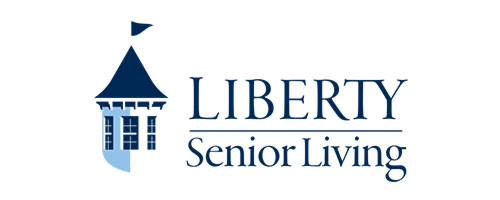Why you should have hack-a-thons, maker meet-ups and train-Ins
 My grandmother used to keep the soap in her tub on a discarded kitchen sponge. That way, the soap didn’t slide off the tub edge, and the soap residue absorbed in the sponge was put to good use when the tub needed a quick cleaning after a grimy grandchild (or two!). Sometimes she would even hand over an old toothbrush, the better to scrub the grouting clean as long as we were at it.
My grandmother used to keep the soap in her tub on a discarded kitchen sponge. That way, the soap didn’t slide off the tub edge, and the soap residue absorbed in the sponge was put to good use when the tub needed a quick cleaning after a grimy grandchild (or two!). Sometimes she would even hand over an old toothbrush, the better to scrub the grouting clean as long as we were at it.
Today my grandmother’s repurposed sponge and toothbrush would definitely qualify as a “life hack,” or the creative use of ordinary objects to solve an everyday challenge. I am certain that to folks over 75, adding a label to what is just plain old good sense solution seems silly, and not hip or “on fleek,” as their great-grandkids might say. Yet, as the New York Times recently reported, “senior hackers” may just be leading the way to new product designs at some of the world’s leading design agencies
Creativity, whether it be artistic expression or thinking out of the box, is perhaps the ultimate mash-up of intellectual engagement, wisdom and problem-solving. And it is that intellectual engagement that might just be a game changer when it comes to our brain vitality. Studies have shown that being intellectual engaged is associated with increased brain volume, synaptic density, and neuroplasticity. Lifelong intellectual stimulation has long been linked to a significant reduction in risk for dementia, in some studies by up to 63%. More recent research suggests that such activity may even delay the onset of clinical symptoms and attenuate the course of cognitive decline when memory loss does occur. Finally, creative engagement offers ample opportunity to build personal expression, self-efficacy and a greater sense of purpose, which play a critical role not only in brain vitality but in successful aging.
These recent popular creativity movements can inspire us all to engage the brains of those in our communities in new ways. Here are some ideas to try:
Hack-a-thons. What “life hacks” do you and your clients know and use? Hold a “Hack-a-Thon” competition where your folks can share their creative solutions to common everyday problems. You can share “life hacks” to get everyone started – look to sites such as lifehack.org for some ideas. Let everyone vote and award a prize for the best “life hack,” then feature the winner in a community-wide presentation or news article. Try a themed Caregiver Hack-a-Thon to highlight the many inventive ways caregivers resolve the unique challenges they face.
Maker Meet Ups. Maker events might be familiar to anyone who ever took shop or arts and crafts. Popularized by Make Magazine and the Maker Faire movement, the concept is perfect for folks who always enjoyed tinkering or hands-on creativity. Why not offer a Maker meet up class? You can choose projects to work on as a group, or buy kits that teach newer technology such as robotics.
Train-ins. How about a bit of role reversal? Many of the skills that were once common, such as the ability to make simple electronic repairs, have dwindled in younger generations where classes like shop and home economics have dropped from the curriculum. Join forces with a local middle or high school or youth group to offer a “Train-In,” where your community members can teach the lost art of fixing small electronics, repairing eyeglasses, and other household tips.
Have a favorite life hack of your own, or one from your community? Let me know, I’d love to share it here on your behalf with all our readers.
Here’s to many creative moments!
Author
Cynthia R. Green, Ph.D,CEO and Founder, Total Brain Health
Cynthia R. Green, Ph.D. is a clinical psychologist and leading expert in the field of brain health who currently serves as president of Total Brain Health, home of the TBH Toolkits line of brain fitness “programs in a box” for active aging, offering everyone the chance to take better care of their brains. Author of 5 books on brain health, Dr. Green is a regular media guest and popular keynote speaker.
Note: This information is not intended to replace a one-on-one relationship with a qualified healthcare professional and is not intended as medical advice. It is intended as a sharing of knowledge and information from research. The view expressed here are not necessarily those of the ICAA, we encourage you to make your own health and business decisions based upon your research and in partnership with a qualified professional.
Share































